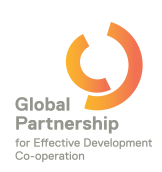UN Member States, the private sector, civil society and international organizations convened to discuss the potential of a global multi-stakeholder partnership to support the UN's post-2015 development agenda, and some concerns with the private sector's role.
The discussions took place in two side events organized by the Global Partnership for Effective Development Co-operation, on 24 and 26 September 2014, in New York, US, on the sidelines of the 69th UN General Assembly.
 26 September 2014: UN Member States, the private sector, civil society and international organizations convened to discuss the potential of a global multi-stakeholder partnership to support the UN’s post-2015 development agenda, and some concerns with the private sector’s role. The discussions took place in two side events organized by the Global Partnership for Effective Development Co-operation, on 24 and 26 September 2014, in New York, US, on the sidelines of the 69th UN General Assembly.
26 September 2014: UN Member States, the private sector, civil society and international organizations convened to discuss the potential of a global multi-stakeholder partnership to support the UN’s post-2015 development agenda, and some concerns with the private sector’s role. The discussions took place in two side events organized by the Global Partnership for Effective Development Co-operation, on 24 and 26 September 2014, in New York, US, on the sidelines of the 69th UN General Assembly.
Emad Bibawi, KPMG, said there is no “one size fits all” when it comes to the private sector. Thus, the Sustainable Development Goals (SDGs) should be considered in relation to different sectors and company sizes. He recommended identifying market trends and opportunities that lead to and serve the SDGs, and integrating incentives and inspiration in approaching the private sector. He said businesses think more about “shared value” than about philanthropy.
Peter Bakker, President, World Business Council for Sustainable Development (WBCSD), said companies need to find an assessment mechanism that accounts not only for financial returns but also social and environmental returns, and integrates these into accounting. He explained that once people can see what businesses do through reporting focused on their impact, it will no longer be a matter of transparency, but of performance.
Erik Solheim, Chair, Organization for Economic Co-operation and Development (OECD) Development Assistance Committee (DAC), identified two key areas for development – agriculture and energy – and invited governments to sit down with leaders from the private sector to consider actions in these areas. Maria Eugenia (Gina) Casar, UN Development Programme (UNDP), stressed that the success of the new agenda depends not only on the goals and resources, but also on resource delivery. Feike Sijbesma, DSM, said that it is in the DNA of business to find solutions, and therefore building a framework with incentives will attract businesses to come and help.
Emilia Pires, Minister of Finance, Timor-Leste, said that high-level discussions at the UN do not correspond with the issues of implementation on the ground, where governments are being bullied by companies. George Chaponda, Minister of Foreign Affairs, Malawi, said bullying happens when the “partners” set their own agenda and bring conditionalities.
Huguette Labelle, Transparency International, said civil society can serve as a bridge between people on the ground, the private sector, governments and international donors. She said civil society can also: provide assessment and monitoring; deliver services; and provide advice on programs and use of resources for people on the ground. Reeta Roy, Mastercard Foundation, highlighted that 59 billion dollars come from philanthropy, which is the third-largest source for development cooperation and needs to be seen as complementary to other forms of development finance. She said philanthropy has the power to really listen to all actors involved and to help not only in implementation but also in evaluation, while also reducing the knowledge gap.
The Global Partnership for Effective Development Co-operation was established during the Fourth High Level Forum (HLF4) in Busan to ensure that development co-operation has the maximum possible impact on development results. [Global Partnership for Effective Development Co-operation – UNGA Meetings] [OECD Webpage on Global Partnership] [IISD RS Sources]